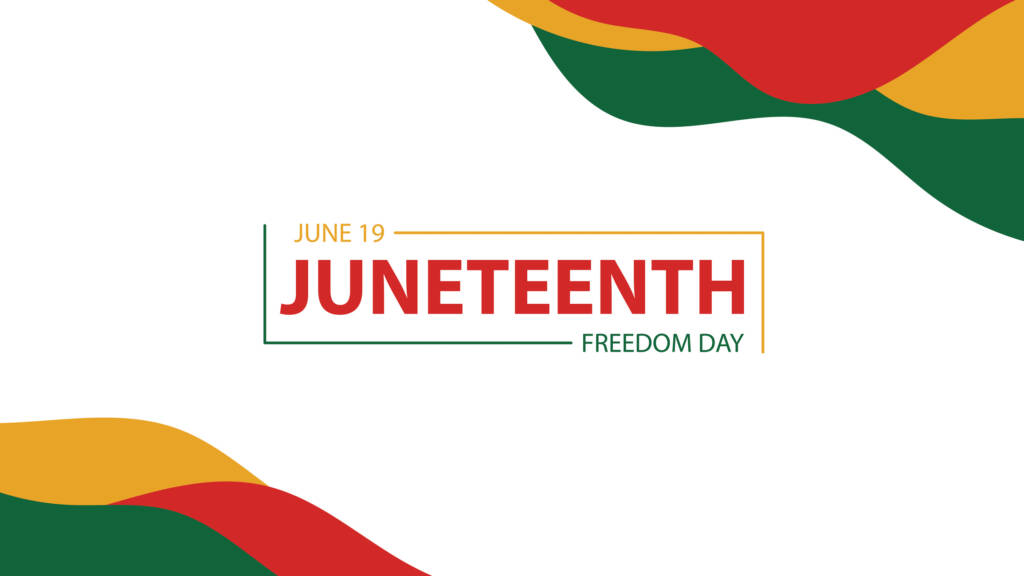What Is an Ethics Reporting Hotline? Best Practices for Employers
A key element of a strong compliance program, ethics hotlines play a crucial role in promoting transparency, accountability, and integrity across organizations and industries as a whole.
What is an Ethics Reporting Hotline?
An ethics reporting hotline is an anonymous reporting tool designed to enable employees to disclose potential instances of illegal, unethical, or improper conduct within their organization.
Also called a compliance or whistleblowing hotline, an ethics reporting hotline provides a confidential mechanism for employees to report regulatory misconduct, violations, and other ethical concerns without fear of reprisal. Tools of its kind were mandated by the Sarbanes-Oxley Act of 2002 to facilitate the confidential and anonymous submission of concerns related to questionable accounting or auditing matters.
Ethics hotlines are utilized when standard reporting channels are deemed ineffective or impractical, providing a safe alternative for employees who may not feel comfortable reporting directly to human resources or leadership teams. They are typically administered by a third-party provider to avoid conflicts of interest, ensure anonymity, and protect employees against retaliation. Once a report is submitted, the third-party provider removes any personally identifying information and forwards it to the appropriate company department or manager for investigation. To maintain anonymity, encrypted messaging systems may be utilized for follow-up communication between the company and the anonymous reporter.
The Importance of an Ethics Hotline
The importance of an ethics reporting hotline in building a culture of compliance and accountability cannot be overstated.
- It provides insight beyond formal channels: Human resources, legal departments, and company leadership may not always be fully aware of the cultural dynamics within their organization. An ethics reporting hotline provides a direct line of communication for employees to voice concerns and provide insights that may not be captured through formal channels such as annual reviews, company surveys, or HR complaints.
- It accommodates a wide range of concerns: Employees may have various reasons for reporting misconduct, including financial wrongdoing, fraud, harassment, bullying, bias, and workplace safety issues. An ethics hotline offers a platform to address a diverse array of concerns, ensuring that all types of misconduct are brought to light and addressed promptly.
- It provides a direct feedback loop: By encouraging direct feedback from employees, an ethics hotline makes individuals feel heard and valued within their organization. This fosters a sense of trust and openness, enabling employees to contribute to the organization’s success by sharing their perspectives and experiences.
- It enables anonymous reporting: Anonymity is crucial in overcoming barriers to reporting. Research indicates that a significant portion of employees hesitate to report wrongdoing due to fear of reprisal; in 2021, employee relations management company AllVoices found that 26.5% of 1,000 surveyed employees had witnessed workplace wrongdoing but didn’t report it due to fear of retaliation. By offering a truly anonymous reporting option, ethics hotlines encourage more employees to come forward with their concerns, thereby preventing potential legal and reputational risks.
- It prevents escalation: When employees do not feel comfortable speaking up internally, they may resort to external avenues such as filing a lawsuit, approaching regulatory agencies, or alerting the media. This can result in significant financial penalties and reputational damage for the organization.
- It supports continuous improvement efforts: By analyzing the data collected through the hotline, organizations can identify trends and patterns in reported issues, pinpoint recurring problems or systemic issues that may be affecting multiple departments or processes, address root causes, and implement targeted solutions.
Benefits of Ethics Reporting Hotlines
Ethics reporting hotlines offer a multitude of benefits for both employees and organizations. Benefits for employees include:
- Safe and confidential reporting
- An enhanced sense of safety
- Meaningful promotion of fairness
- Protection of the right to work in a safe and ethical environment
- Active contribution to organizational well-being
- An increased likelihood of reporting in the future
Benefits for organizations include:
- Early detection and prevention of unethical behavior
- Visible promotion of an ethical culture
- Enhanced transparency and trust
- The ability to identify underlying issues
- Mitigation of legal and reputational risks
- Enhanced corporate governance
- Improved ethical standards
- Avoiding millions of dollars in financial penalties
- Supporting continuous improvement efforts
Reinforcing Whistleblower Protection
When it comes to encouraging whistleblowers to come forward, ensuring the protection of their identity and well-being is non-negotiable.
First and foremost, it’s important to address the misconception that whistleblowing only pertains to major issues. Often, employees may hesitate to report smaller — yet significant — concerns for fear of being labeled as troublemakers or squeaky wheels. By clarifying that all concerns, regardless of size, are welcome through the hotline, your organization can encourage a culture of openness and accountability.
To reassure employees and provide them with tangible protection, you’ll need to educate them about any anti-retaliation measures and whistleblower protection laws in place in their locale. These measures are designed to shield employees from adverse actions taken against them as a result of their reporting. Employees should understand that they have legal rights and protections against retaliation.
Confidentiality and anonymity also play crucial roles in protecting whistleblowers. Employees must trust that their identity will remain confidential and that their anonymity will be preserved when reporting through the hotline. Regular reminders of this confidentiality and guaranteed anonymity further reinforces employees’ confidence in the reporting process.
Consider amending your organization’s corporate policies to explicitly include clauses that outline whistleblower protection and confidentiality guarantees. By formalizing these protections in company policies, organizations demonstrate their commitment to upholding ethical standards and protecting those who come forward with concerns.
Setting Up Your Ethics Hotline
Each reporting tool will require a slightly different implementation process — but regardless of the tool, there are a number of preferred qualities to look for while setting up your hotline.
- Choose a reputable third-party vendor.
Rather than setting up an in-house hotline, it’s best to use a third-party vendor to ensure independence and impartiality in the reporting process. Look for vendors with a proven track record in ethics reporting services. - Ensure 24/7 availability.
The hotline should be accessible to all employees at any time, including non-work hours, to accommodate different time zones and work schedules. - Opt for a cloud-based solution.
Choose a cloud-based platform that employees can access from any browser, device, or location. This ensures maximum accessibility and convenience for users. - Prioritize user-friendly design.
The hotline platform should be intuitive and easy to navigate for employees of all technical abilities. A user-friendly interface encourages greater participation and engagement. - Guarantee anonymity and confidentiality.
Ensure that the hotline platform guarantees anonymity and confidentiality of information, as anonymity is essential for encouraging employees to report concerns without fear of retaliation. Even anonymous reports can help identify patterns of misconduct involving specific managers or departments. - Accommodate multiple languages.
Make sure that the hotline platform supports multiple languages to cater to diverse linguistic needs. This promotes inclusivity and accessibility for all staff members. - Seek a sustainable partnership.
Look for a vendor that is willing to partner with your organization to uncover underlying issues and shape a culture of feedback. A collaborative approach ensures that the hotline aligns with your organizational goals and values. - Test and train.
Before launching the hotline, conduct thorough testing to ensure that it functions smoothly and meets the needs of your organization. Additionally, provide comprehensive training to employees on how to use the hotline effectively and responsibly. - Launch and promote.
Once the hotline is set up and tested, launch it across the organization. Promote awareness of the hotline through various channels, such as email communications, employee newsletters, and training sessions. Emphasize the importance of reporting concerns and assure employees of the confidentiality and anonymity of the process.
Managing Ethics Hotline Reports
Effectively managing ethics hotline reports is essential to maintaining the integrity and credibility of the reporting process.
- Upon receiving a report through the ethics hotline, promptly initiate a thorough investigation. Assign the investigation to qualified personnel trained in handling sensitive matters. Investigate all allegations diligently, gathering relevant evidence and interviewing involved parties. Adhere to predetermined investigation timelines to ensure timely resolution and minimize disruption to the workplace.
- It’s critical to uphold the confidentiality of all hotline reports and related investigations. Limit access to information on a need-to-know basis and ensure that only authorized personnel are involved in the investigation process. Safeguard the identity of whistleblowers and the confidentiality of their reports to protect them from potential retaliation and maintain trust in the reporting mechanism.
- Approach each report seriously and objectively, regardless of the nature or source of the allegations. Avoid bias or preconceived notions and refrain from making assumptions before conducting a thorough investigation. Treat all individuals involved with respect and fairness throughout the process, maintaining professionalism and impartiality at all times.
- Invest in automated technology or software solutions designed to streamline the management of hotline reports. Utilize tools that enable efficient triaging and escalation of issues to the appropriate decision-makers within the organization. Automated systems can help prioritize reports based on severity, track the progress of investigations, and ensure timely follow-up and resolution.
Training and Communication
Along with comprehensive compliance training that sets the bar for company-wide ethical behavior, employees should be thoroughly trained on the specific tools to ensure their compliance.
Training should include and/or address:
- An explanation of hotline goals: Provide employees with basic information on the fundamental goals of the hotline program. Explain its purpose in promoting transparency, accountability, and ethical conduct within the organization. Highlight the importance of reporting concerns promptly and the role of the hotline in facilitating this process.
- Anonymity and confidentiality safeguards: Make sure employees understand how their anonymity and confidentiality will be safeguarded when using the hotline. Reiterate your organization’s commitment to maintaining trust and confidentiality when concerns are raised.
- Ethical standards and code of conduct: Provide a refresher on your organization’s official ethics policies and conduct standards. Provide clear examples of behaviors that align with these standards and those that constitute misconduct or ethical violations. Reinforce the organization’s commitment to upholding these standards and the role of the hotline in ensuring compliance.
- Clear procedures and protocols: Establish clear-cut, transparent procedures and protocols for interacting with hotline users and processing the information they report. Make sure that employees understand how to submit a report, what information to include, and the steps involved in the investigation and follow-up process. Provide training on how to handle hotline reports professionally and confidentially.
Once formal training has concluded, the HR team should frequently remind employees about the hotline through various channels, including workplace posters, the company intranet, new employee orientation sessions, and annual employee education sessions. Repetition and reinforcement help reinforce awareness and encourage utilization of the hotline.
Looking for an airtight reporting solution that encourages widespread adoption and fosters trust? Star’s Incident & Policy Management solution provides a confidential, scalable mechanism for reporting suspected misconduct and supporting an overall culture of compliance. Request a demo of our leading software today.

Empowering Whistleblowing



